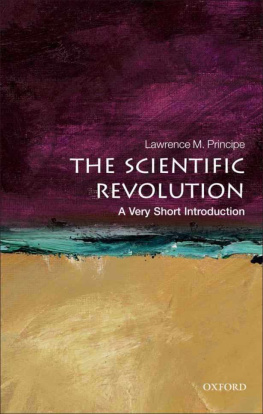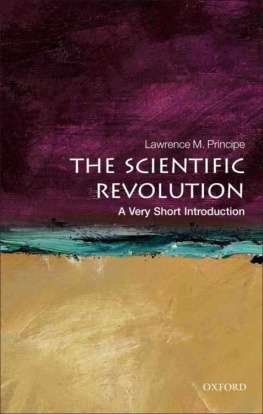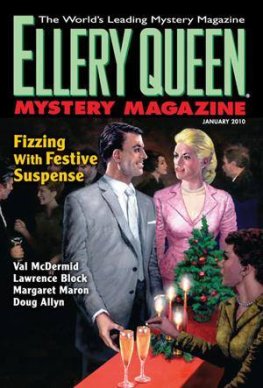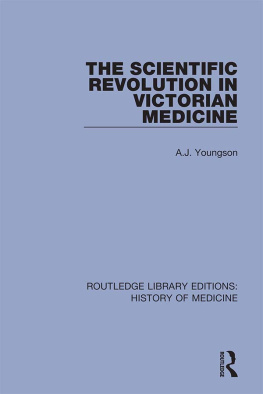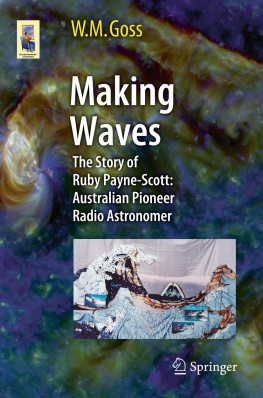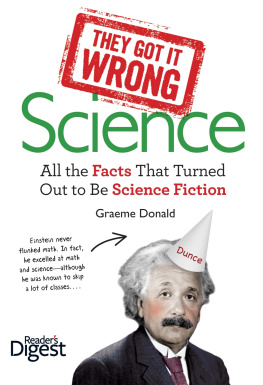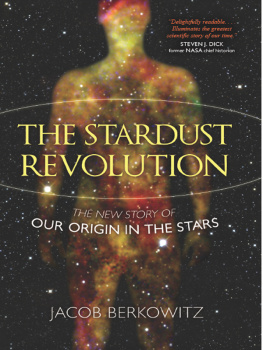The Scientific Revolution: A Very Short Introduction
VERY SHORT INTRODUCTIONS are for anyone wanting a stimulating and accessible way in to a new subject. They are written by experts, and have been published in more than 25 languages worldwide.
The series began in 1995, and now represents a wide variety of topics in history, philosophy, religion, science, and the humanities. The VSI library now contains over 200 volumesa Very Short Introduction to everything from ancient Egypt and Indian philosophy to conceptual art and cosmologyand will continue to grow to a library of around 300 titles.
Very Short Introductions available now:
ADVERTISING Winston Fletcher
AFRICAN HISTORY
John Parker and Richard Rathbone
AGNOSTICISM
Robin Le Poidevin
AMERICAN POLITICAL PARTIES AND ELECTIONS L. Sandy Maisel
THE AMERICAN PRESIDENCY
Charles O. Jones
ANARCHISM Colin Ward
ANCIENT EGYPT Ian Shaw
ANCIENT PHILOSOPHY
Julia Annas
ANCIENT WARFARE
Harry Sidebottom
ANGLICANISM
Mark Chapman
THE ANGLO-SAXON AGE John Blair
ANIMAL RIGHTS David DeGrazia
ANTISEMITISM Steven Beller
THE APOCRYPHAL GOSPELS
Paul Foster
ARCHAEOLOGY Paul Bahn
ARCHITECTURE Andrew Ballantyne
ARISTOCRACY William Doyle
ARISTOTLE Jonathan Barnes
ART HISTORY Dana Arnold
ART THEORY Cynthia Freeland
ATHEISM Julian Baggini
AUGUSTINE Henry Chadwick
AUTISM Uta Frith
BARTHES Jonathan Culler
BEAUTY Roger Scruton
BESTSELLERS John Sutherland
THE BIBLE John Riches
BIBLICAL ARCHEOLOGY Eric H. Cline
BIOGRAPHY Hermione Lee
THE BLUES Elijah Wald
THE BOOK OF MORMON Terryl Givens
THE BRAIN Michael OShea
BRITISH POLITICS Anthony Wright
BUDDHA Michael Carrithers
BUDDHISM Damien Keown
BUDDHIST ETHICS Damien Keown
CAPITALISM James Fulcher
CATHOLICISM Gerald OCollins
THE CELTS Barry Cunliffe
CHAOS Leonard Smith
CHOICE THEORY Michael Allingham
CHRISTIAN ART Beth Williamson
CHRISTIAN Ethics D. Stephen Long
CHRISTIANITY Linda Woodhead
CITIZENSHIP Richard Bellamy
CLASSICAL MYTHOLOGY Helen Morales
CLASSICS Mary Beard and John Henderson
CLAUSEWITZ Michael Howard
THE COLD WAR Robert McMahon
COMMUNISM Leslie Holmes
CONSCIOUSNESS Susan Blackmore
CONTEMPORARY ART Julian Stallabrass
CONTINENTAL PHILOSOPHY Simon Critchley
COSMOLOGY Peter Coles
CRITICAL THEORY Stephen Eric Bronner
THE CRUSADES Christopher Tyerman
CRYPTOGRAPHY Fred Piper and Sean Murphy
DADA AND SURREALISM David Hopkins
DARWIN Jonathan Howard
THE DEAD SEA SCROLLS Timothy Lim
DEMOCRACY Bernard Crick
DESCARTES Tom Sorell
DESERTS Nick Middleton
DESIGN John Heskett
DINOSAURS David Norman
DIPLOMACY Joseph M. Siracusa
DOCUMENTARY FILM Patricia Aufderheide
DREAMING J. Allan Hobson
DRUGS Leslie Iversen
DRUIDS Barry Cunliffe
EARLY MUSIC Thomas Kelly
THE EARTH Martin Redfern
ECONOMICS Partha Dasgupta
EGYPTIAN MYTH Geraldine Pinch
EIGHTEENTH-CENTURY BRITAIN Paul Langford
THE ELEMENTS Philip Ball
EMOTION Dylan Evans
EMPIRE Stephen Howe
ENGELS Terrell Carver
ENGLISH LITERATURE Jonathan Bate
EPIDEMIOLOGY Roldolfo Saracci
ETHICS Simon Blackburn
THE EUROPEAN UNION John Pinder and Simon Usherwood
EVOLUTION Brian and Deborah Charlesworth
EXISTENTIALISM Thomas Flynn
FASCISM Kevin Passmore
FASHION Rebecca Arnold
FEMINISM Margaret Walters
FILM MUSIC Kathryn Kalinak
THE FIRST WORLD WAR Michael Howard
FOLK MUSIC Mark Slobin
FORENSIC PSYCHOLOGY David Canter
FORENSIC SCIENCE Jim Fraser
FOSSILS Keith Thomson
FOUCAULT Gary Gutting
FREE SPEECH Nigel Warburton
FREE WILL Thomas Pink
FRENCH LITERATURE John D. Lyons
THE FRENCH REVOLUTION William Doyle
FREUD Anthony Storr
FUNDAMENTALISM Malise Ruthven
GALAXIES John Gribbin
GALILEO Stillman Drake
GAME THEORY Ken Binmore
GANDHI Bhikhu Parekh
GENIUS Andrew Robinson
GEOGRAPHY John Matthews and David Herbert
GEOPOLITICS Klaus Dodds
GERMAN LITERATURE Nicholas Boyle
GERMAN PHILOSOPHY Andrew Bowie
GLOBAL CATASTROPHES Bill McGuire
GLOBAL WARMING Mark Maslin
GLOBALIZATION Manfred Steger
THE GREAT DEPRESSION AND
THE NEW DEAL Eric Rauchway
HABERMAS James Gordon Finlayson
HEGEL Peter Singer
HEIDEGGER Michael Inwood
HIEROGLYPHS Penelope Wilson
HINDUISM Kim Knott
HISTORY John H. Arnold
THE HISTORY OF ASTRONOMY Michael Hoskin
THE HISTORY OF LIFE Michael Benton
THE HISTORY OF MEDICINE William Bynum
THE HISTORY OF TIME Leofranc Holford-Strevens
HIV/AIDS Alan Whiteside
HOBBES Richard Tuck
HUMAN EVOLUTION Bernard Wood
HUMAN RIGHTS Andrew Clapham
HUMANISM Stephen Law
HUME A. J. Ayer
IDEOLOGY Michael Freeden
INDIAN PHILOSOPHY Sue Hamilton
INFORMATION Luciano Floridi
INNOVATION Mark Dodgson and David Gann
INTELLIGENCE Ian J. Deary
INTERNATIONAL MIGRATION Khalid Koser
INTERNATIONAL RELATIONS Paul Wilkinson
ISLAM Malise Ruthven
ISLAMIC HISTORY Adam Silverstein
JOURNALISM Ian Hargreaves
JUDAISM Norman Solomon
JUNG Anthony Stevens
KABBALAH Joseph Dan
KAFKA Ritchie Robertson
KANT Roger Scruton
KEYNES Robert Skidelsky
KIERKEGAARD Patrick Gardiner
THE KORAN Michael Cook
LANDSCAPES AND GEOMORPHOLOGY Andrew Goudie and Heather Viles
LATE ANTIQUITY Gillian Clark
LAW Raymond Wacks
THE LAWS OF THERMODYNAMICS Peter Atkins
LEADERSHIP Keith Grint
LINCOLN Allen C. Guelzo
LINGUISTICS Peter Matthews
LITERARY THEORY Jonathan Culler
LOCKE John Dunn
LOGIC Graham Priest
MACHIAVELLI Quentin Skinner
THE MARQUIS DE SADE John Phillips
MARX Peter Singer
MARTIN LUTHER Scott H. Hendrix
MATHEMATICS Timothy Gowers
THE MEANING OF LIFE Terry Eagleton
MEDICAL ETHICS Tony Hope
MEDIEVAL BRITAIN John Gillingham and Ralph A. Griffiths
MEMORY Jonathan K. Foster
MICHAEL FARADAY Frank A. J. L. James
MODERN ART David Cottington
MODERN CHINA Rana Mitter
MODERN IRELAND Senia Paeta
MODERN JAPAN Christopher Goto-Jones
MODERNISM Christopher Butler
MOLECULES Philip Ball
MORMONISM Richard Lyman Bushman
MUHAMMAD Jonathan A. C. Brown
MUSIC Nicholas Cook
MYTH Robert A. Segal
NATIONALISM Steven Grosby
NELSON MANDELA Elleke Boehmer
NEOLIBERALISM Manfred Steger and Ravi Roy
THE NEW TESTAMENT Luke Timothy Johnson
THE NEW TESTAMENT AS
LITERATURE Kyle Keefer
NEWTON Robert Iliffe
NIETZSCHE Michael Tanner
NINETEENTH-CENTURY
BRITAIN Christopher Harvie and H. C. G. Matthew
THE NORMAN CONQUEST George Garnett
NORTH AMERICAN INDIANS Theda Perdue and Michael Green
NORTHERN IRELAND Marc Mulholland
NOTHING Frank Close
NUCLEAR WEAPONS Joseph M. Siracusa
THE OLD TESTAMENT Michael D. Coogan
ORGANIZATIONS Mary Jo Hatch
PARTICLE PHYSICS Frank Close
PAUL E. P. Sanders
PENTECOSTALISM William K. Kay
PHILOSOPHY Edward Craig
PHILOSOPHY OF LAW Raymond Wacks
PHILOSOPHY OF SCIENCE Samir Okasha
PHOTOGRAPHY Steve Edwards
PLANETS David A. Rothery
PLATO Julia Annas
POLITICAL PHILOSOPHY David Miller
Next page
